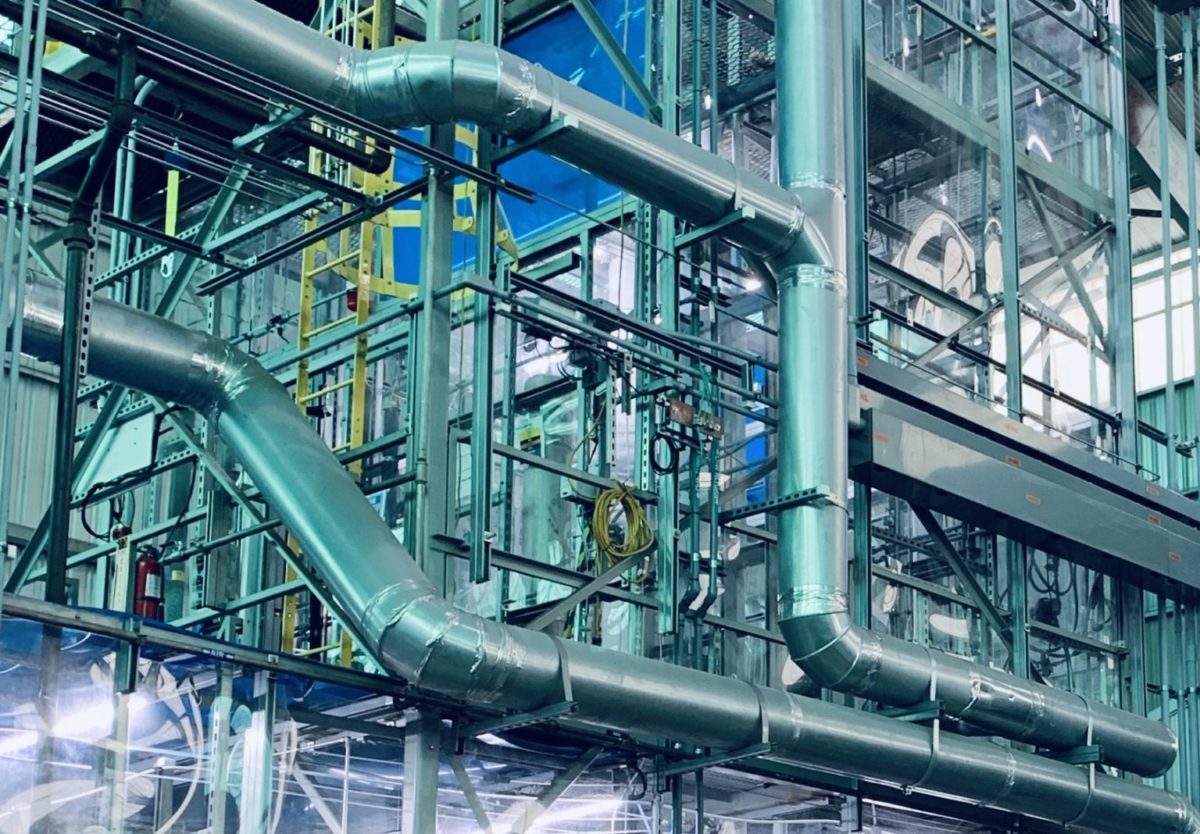From pv magazine USA
Verdagy, a company that is developing a water-based electrolyser for green hydrogen production, has secured cash to scale its technology in a US$25 million (AU$35 million) funding round led by TDK Ventures, Orbia, BHP Ventures, Doral Energy, Tech Ventures, Kholsa Ventures, Shell Ventures, and Temasek.
The technology is designed to provide hydrogen fuel for heavy industrial applications, a sector responsible for about one third of global emissions. The electrolyser can reduce its carbon impact by being supplied with sources like solar and wind.
Verdagy was spun off from chemical company Chemetry in May 2021 to develop a novel design to water electrolysis. The company’s device splits water into hydrogen and oxygen molecules through an electric current. The membrane-based technology uses large active area cells, high current densities, and broad operating ranges to deliver hydrogen at scale.
The company said its industry-largest cells operate at energy densities 10 times higher than traditional alkaline water electrolysis. The company said it has a load shedding ability of 95% to reduce energy costs and maximise production.
Analysts are now predicting that the global green hydrogen market will reach US$89 billion (AU$125 billion) by 2030, said Verdagy. Rising demand and falling costs has led to both renewable energy and electrolysis prices falling 50% to 60% every five years, said the company.
Verdagy operates a pilot plant in Moss Landing, California, a hotbed for large-scale energy storage and solar development.
“We believe that green hydrogen at the right scale and cost is key to decarbonising industrial processing of steel, aluminium, cement and chemicals – and in combination with captured CO2, enables the production of other chemical feedstocks and liquid fuels for marine and aviation applications,” said Sameer Bharadwaj, CEO of Orbia. “Orbia hopes to contribute to Verdagy’s success with its expertise in basic and advanced materials, large-scale chemical processes and a keen focus on decarbonisation technologies that support a sustainable future.”
Orbia said it is simultaneously investing in food security and growth, water management, infrastructure development, data access, health advancement and sustainable energy, energy storage and decarbonisation alongside hydrogen electrolysis.
This content is protected by copyright and may not be reused. If you want to cooperate with us and would like to reuse some of our content, please contact: editors@pv-magazine.com.









By submitting this form you agree to pv magazine using your data for the purposes of publishing your comment.
Your personal data will only be disclosed or otherwise transmitted to third parties for the purposes of spam filtering or if this is necessary for technical maintenance of the website. Any other transfer to third parties will not take place unless this is justified on the basis of applicable data protection regulations or if pv magazine is legally obliged to do so.
You may revoke this consent at any time with effect for the future, in which case your personal data will be deleted immediately. Otherwise, your data will be deleted if pv magazine has processed your request or the purpose of data storage is fulfilled.
Further information on data privacy can be found in our Data Protection Policy.